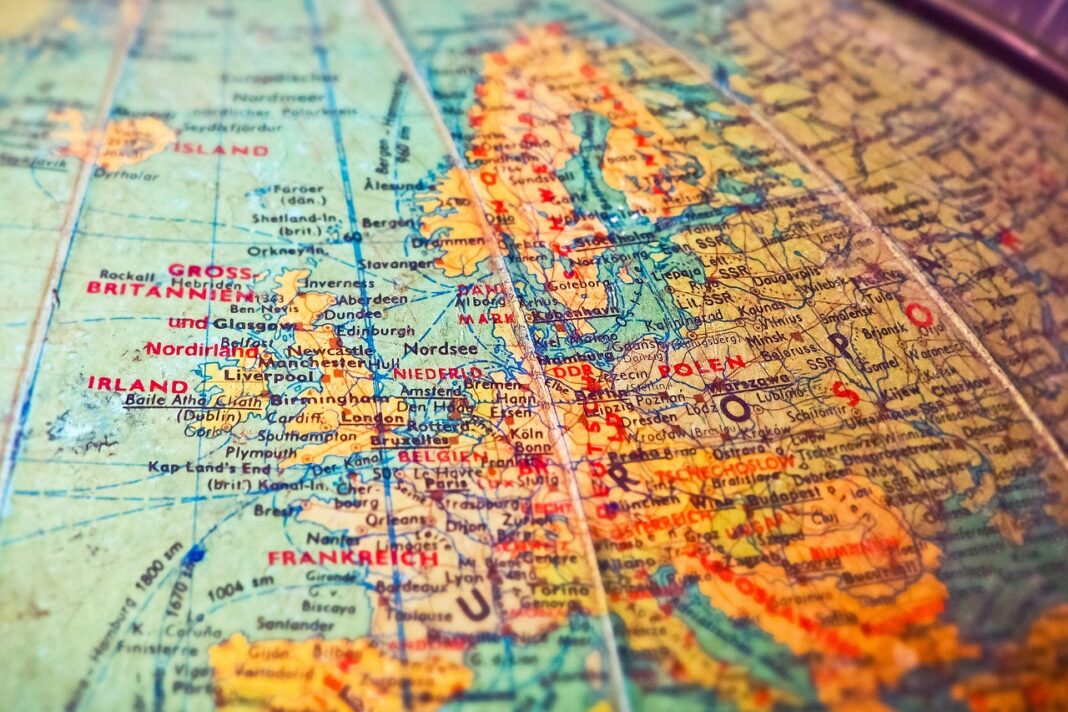By Kung Chan and Zhou Chao
While the fears of a global war largely subsided since the Cold War’s end, recurring regional conflicts cast doubt on the attainment of worldwide peace. The U.S. aspires to sustain and bolster its global dominance, striving to retain sole superpower status. As China’s influence grows amid the anti-globalization tide, the international geopolitical landscape is in a state of profound transformation. Looking ahead, the enduring prevalence of regional hegemonic divisions appears to be a defining trend in the long-term geopolitical landscape.
Over the coming decades, a pivotal shift will unfold: the rise of diverse regional hegemonies. This transformation is propelled by the persistent fragmentation of the global scenes amid the era of anti-globalization.
In the context of the Americas, the United States, exercising its role as the preeminent superpower, commands significant influence over proximate nations such as Mexico and Canada. The augmentation of economic interconnections through U.S. nearshoring serves to fortify its dominion within North American affairs. This cohesion is underpinned by similar political systems and shared ideologies, rendering Canada’s alignment with the United States unsurprising, with Mexico potentially following a similar trajectory.
Within the European domain, the European Union (EU) demonstrates limited capacity to emerge as an independent global actor. Perturbations stemming from events such as the Russo-Ukraine war, the redirection of U.S. capital, and the tide of anti-globalization are expected to reduce the EU’s inherent advantages. The assertive anti-Russia stance adopted by several Eastern European nations, coupled with their notable contributions during the war, served to diminish the sway traditionally held by France and Germany. Hungary’s discernible policy deviations further compound challenges to EU cohesiveness. As a consequence, the EU is poised to rely extensively on NATO for security and the Anglo-American axis for economic and energy-related affairs, thereby relinquishing a degree of its strategic autonomy.
In Asia, China is poised to maintain its dominant position in East Asia, albeit amidst challenges such as Western-driven decoupling, global economic interdependence, and China’s aging demographic. India, positioned in opposition to China, will emerge as a consequential actor. The U.S. will persist in its engagement in the Asia-Pacific region, influenced by the strategic significance of the Taiwan Strait in international trade routes. Due to the complexity of territorial conflicts in the South Sea, it is unlikely that Vietnam and the Philippines will be fully won over by China. The Southeast Asia-China relationship may remain contentious. Within the region, there are foreseeable frictions among major powers, with India intensifying its sphere of influence.
The region spanning across Central and West Asia, to North Africa, will be marked by multiple competing fractions, contributing to the gradual decline of U.S. supremacy there, while Israel, Saudi Arabia, Iran, and other nations are set to ascend as regional powerhouses.
As for the African continent as a whole, it confronts internal conflicts and the impacts of anti-globalization waves, creating impediments to regional stability. Due to the reverberations of the Arab Spring, coupled with pre-existing religious and ethnic tensions, along with the challenges posed by high inflation and financial instability, a state of continuous upheaval prevails in many regions of the continent. Notably, Sudan remains a focal point of unrest. South Africa, being the most developed and politically stable country on the continent, holds the potential to rise as a regional hegemon in Africa. Nevertheless, the intricate web of conflicts within the African landscape, along with heightened competition among Western powers seeking to counter China’s influence on the continent, indicates that South Africa’s attainment of dominant control over regional affairs in the short term is unlikely. The prevailing trend toward fragmentation in Africa will persist and the ascendancy of South Africa as a regional hegemon will be a protracted endeavor.
Given its territorial expanse, population, and overall economic strength, in conjunction with strategic diplomatic efforts initiated during Luiz Inácio Lula da Silva’s tenure, Brazil is on the verge of emerging as the dominant regional power in South America. Nevertheless, it is imperative to recognize that Argentina, in parallel, has undertaken significant measures to diversify its diplomatic and economic relationships. These endeavors include bolstering economic, trade, and financial ties with China. Recent years have witnessed intensified efforts by both the U.S. and the EU to expand their influence in South America, in response to China’s growing impact in the region since the early 2000s. While Brazil is steadily enhancing its influence in South America, it is bound to encounter resistance, possibly even confrontation, from Argentina. The full consolidation of Brazil’s regional hegemonic status remains an evolving process that will require time and strategic finesse.
The global system has witnessed a profound shift, characterized by substantial realignments in supply chains that have eroded the long-standing dominance of the U.S. on the world stage. This transition towards anti-globalization appears poised to endure, potentially spanning a significant temporal expanse, measured in years or even decades. Within this evolving paradigm, one discerns an impending fragmentation of global space, heralding the emergence of regional hegemonies as an enduring motif within the realm of geopolitics.
About the authors:
Founder of ANBOUND Think Tank, Kung Chan is one of China’s renowned information analysis experts specializing in geopolitical and economic policies.
Zhou Chao is a research assistant at ANBOUND’s Center of International Relations and a Ph.D. candidate at Freie Universität Berlin.



